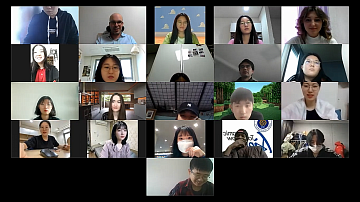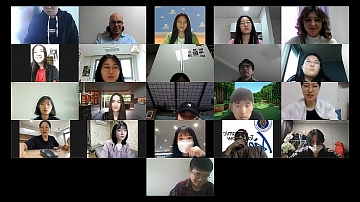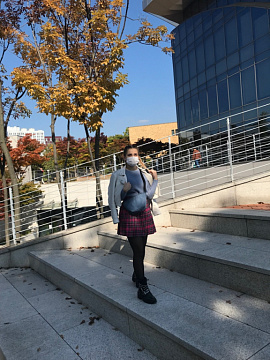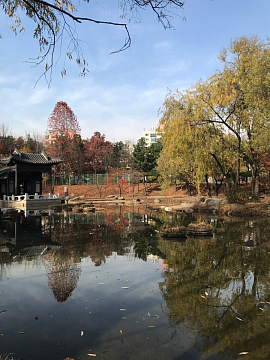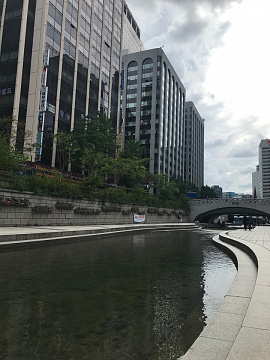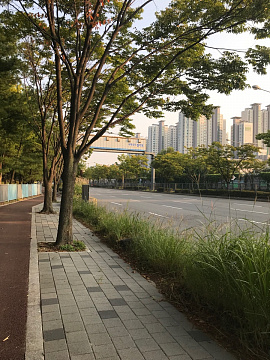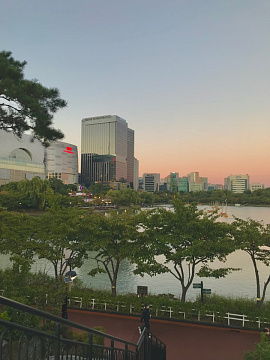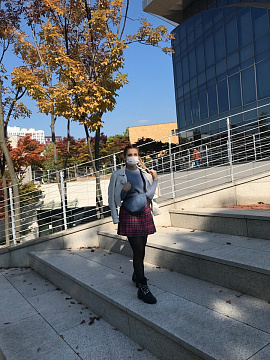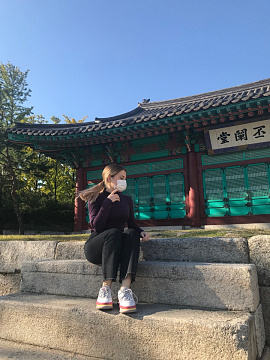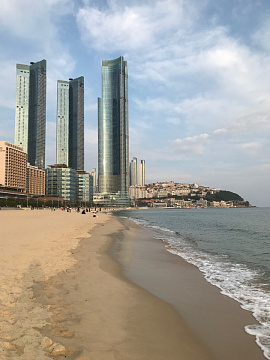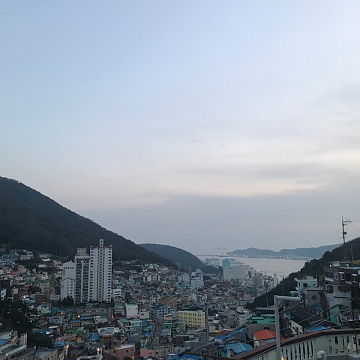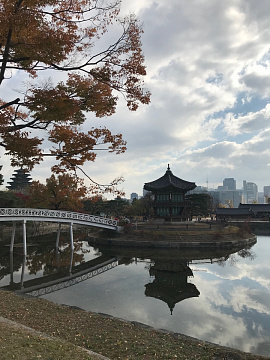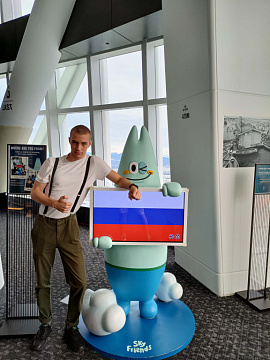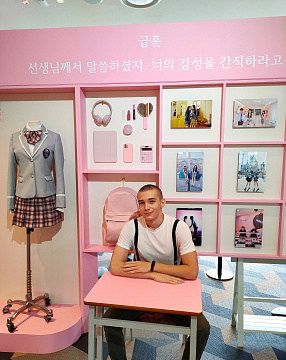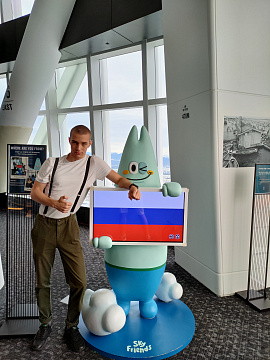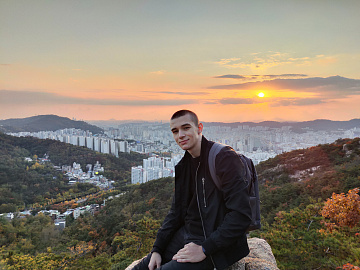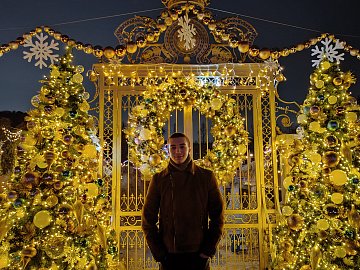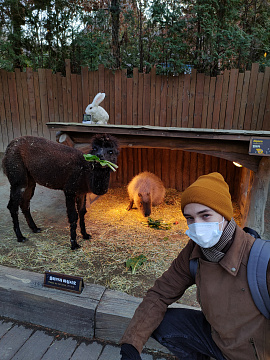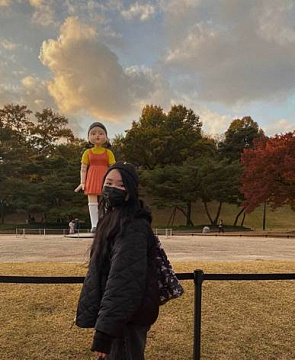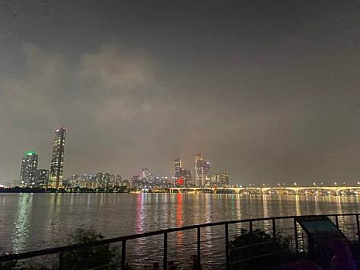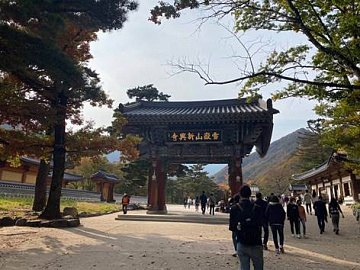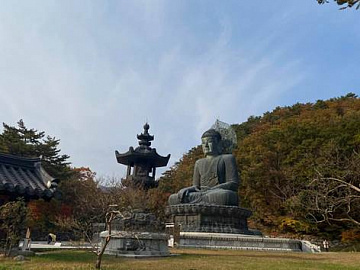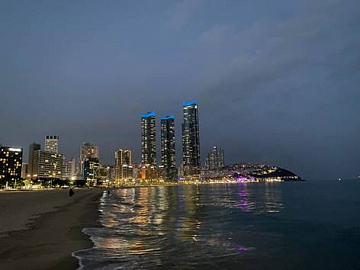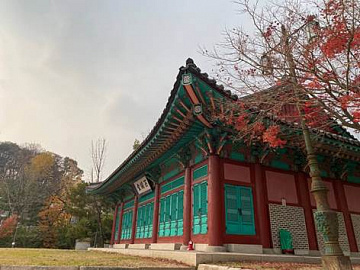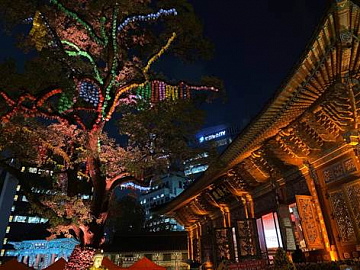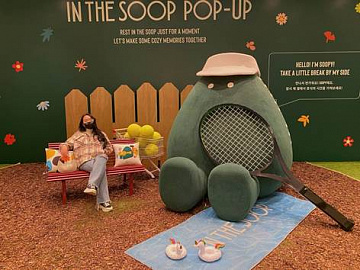I studied at Ajou University.
Overall, I was pleased with the internship. In a short period of time, I managed to master the basics of the Korean language, work out the skills of academic writing and critical analysis. During my studies, much attention was paid to precisely these aspects.
Also, I learned a lot of new and interesting things about Korean culture. Since this training took place remotely, the process of preparing me no trouble at all. Due to the remote internship format, I was in Russia, so there was no need to get a visa. One more advantage of studying online is that it does not require any financial costs.
In general, the study materials were clearly explained. If some questions appear professors provide quick feedback by email or during an online class so it was easy to keep in touch despite we were pretty far from each other. One of the professors was a native English – speaker, which helped me to develop my language skills.
I would be excited to go to Korea. As I learned from the experience of online communication with Korean people, this country is full of different interesting things, culture, music, technologies, and so on. Korea is definitely worth visiting.
Mostly, everything was going smoothly. Just a few times there were some problems with the connection because of power outages in my area. The educational online platform functioned properly and I didn’t face with any difficulties in the use of it. Unfortunately, the remote format of education has a social disadvantage, I wouldn’t mind coming together with new groupmates in real, but it was completely impossible.
This balance between Russian and foreign courses may be really difficult. You should be careful with the course syllabus. Make sure to contact professors as you might not be allowed to take some courses due to many reasons. Do not hesitate to contact your coordinator in the Korean university if you have any questions, better safe than sorry. In my case, I was informed a bit late that I cannot take more than 4 courses, so be aware of everything written in Handbook for the semester. Also, make sure your English level is good enough which is higher than B1. Officially, it is okay to have B1 only, but it is going to be harder for you to interact with foreigners as their English is really advanced. I saw some people struggling a lot so focus on your English.
Getting a Korean visa is not that hard. You should check the embassy website, they have all the information you need. You may get your visa approximately in 3 weeks. Prepare 80 dollars to pay though.
Choosing courses may be really difficult as you should do it yourself. The thing is that the number of students for each course is limited so you should do it really quickly. You will get an instruction though so make sure to read it properly and ask your coordinator if something is unclear.
Save 80 dollars for the visa, all my flights were around 60 000 rubles but my scholarship almost covered it, for the quarantine it was around 900 dollars, for the dormitory 1300 dollars, the health insurance is about 1500 rubles per month but it is better to have one in Russia as you will not be able to get the Korean insurance before your Alien registration card. The transport fee is a bit more than 1 dollar but it also depends on the distance. As a rule, the subway is the cheapest, the bus is more expensive. Having food in Korea is not really expensive; the prizes start from 120 rubles. The fastfood and European cafes are more expensive. To save money, it is possible to apply for the Open kitchen for foreigners. It is free but located in another building. There is no kitchen in the dormitory! Be aware of that.
Now I have friends fr om different countries and continents, and I am sure that we will meet with them again someday.
The most difficulty is the choice of a university that is suitable for the curriculum. It should be remembered that subjects taught during the semester at INRTU will be credited if their analogs in English have been studied at a foreign university. The difficulty is that, in my experience, universities can publish a list of subjects for the upcoming semester only one or two months before the start of their studies, that is, after the enrollment of foreign students, and this list may turn out to be unexpected.
The process begins with the official website of the country's embassy, wh ere you should find a list of documents required for filing. You should not wait for all the documents to be completed and only then leave a request for personal filing. This mistake almost cost me a lot of money for postponing the date of my fly ticket. This time, the embassy met halfway and opened additional receptions on non-working days, but you should not think that any embassy will adapt to students.
I didn't have any difficulties, except for the language barrier. I did not expect that in the country in which I was located, the native population had bad English. You can count on one hand the places wh ere the locals understand English. However, given that now all city maps are available in a smartphone, as well as an online translator, there should not be any big problems.
Tip: Learn basic phrases in the country's official language in case you don't understand your English.
The visa fee was $ 80. The round-trip plane cost more than $ 800. In Korea, due to the regulations on the fight against the Chinese coronavirus, a mandatory fourteen-day quarantine was introduced, which cost me more than $ 1000. A taxi from the quarantine site to the university cost about $ 35. Also in Korea, there is compulsory health insurance, even for foreigners. Its cost is $ 35 per month. Travel by public transport is at the level of Russian prices, but travel by metro is much cheaper than by buses. Absolutely all groceries in stores are at least twice as expensive as in Irkutsk. Living in a dormitory for a semester cost about $ 1000.
Tip: If you are going to cook for yourself, which is obviously cheaper, then find a store closest to you that does not do mark up for advertising it’s store and products. You can ask local students who know the city well about this. For example, for Korea, such a store is called NoBrand, and the prices in it are noticeably cheaper than in the usual Lotte Mart supermarket.
My personal success
To visit another country with a vibrant culture and meet people from different parts of the world was a new and useful experience for me. Exchange studies gave me the opportunity to improve my English, study interesting courses and improve my personal qualities such as independence, responsibility and sociability.
Difficulties on my way
There were difficulties with choosing an airline and a flight to enter the Republic of Korea, because there were restrictions on the types of visas accepted in the country. In the summer of 2021, students with a study visa could fly from Russia to South Korea only via Moscow by Aeroflot and Korean Air airlines.
Students should ask for information at the Consulate General, from the staff of the International Department and from students who have already participated in the academic mobility program.
Documents for my visa
Submission of documents to the Consulate General of the Republic of Korea in Irkutsk was carried out by appointment via e-mail 2 days a week.
I have prepared the following documents for a D-2-4 study visa:
1. Visa Application Form,
2. The original of the foreign passport,
3. A copy of the first page of the passport,
4. Certificate of enrollment,
5. A copy of the certificate of registration of a Korean educational institution,
6. The result of chest fluorography or a certificate of absence of tuberculosis,
7. Negative test result for COVID - 19 coronavirus infection by PCR,
8. Consent to isolation in quarantine facilities.
After submitting the documents, I received a receipt with information about the time of visa issuance. The visa was ready in 2 weeks.
Students should be well acquainted with the announcement of the work of the Consulate General, the rules for submitting documents and obtaining a visa, since even an incorrectly formed e-mail about an appointment can delay obtaining a visa for a week or more.
My arrival at host University
1. There was a limited number of seats for courses at the Ajou university, because the opportunity to take courses was provided after undergraduate students of this university had registered. Many exchange students couldn't take courses in their major.
Students should consider a similar situation with their university in advance.
2. In my case, I got my Alien Registration Card in November. This is an important document that confirms the identity of a foreigner on the territory of the Republic of Korea. Foreigners can make health insurance only after receiving this document. It is not safe to live for 2 months without health insurance in another country.
Students should find out information about the types of health insurance in another country that can be quickly issued.
My expenses
1. Visa fees – $80.
2. Flight Irkutsk-Moscow-Seoul – 64227 rubles.
3. Flight Seoul-Novosibirsk-Chita – 37162 rubles.
4. Quarantine and transfer 1,346,000 KRW ‒ at the time of payment approximately 85740 rubles.
5. Health insurance for 2 months approximately 80,000 KRW ‒ at the time of payment approximately 4960 rubles.
6. The cost of public transport is about 80-100 rubles.
7. Meals in the dining room 4,000 KRW – it is about 250 rubles, in the cafe about 10,000 - 15,000 KRW ‒ 600-1000 rubles.
Impressions
I did my internship at Sungkyunkwan University.
Educational process, accommodation, local support - everything was amazing.
Most of the professors are either practicing architects or have practiced it in the past.
They are professionals with a huge design experience in Korea, USA, China and the UAE.
The experience and knowledges I received not only fr om teachers, but also from my classmates from different countries, inspired me for further development in my professional field. Intensive immersion in a different language environment not only improved my level of English, but also helped to establish a base for further study of the Korean language.
Difficulties during preparations
In my experience the hardest part was getting to Korea due to the strict entry rules (because of COVID-19 situation).
For example, Aeroflot was allowed to take passengers with student visa with only two flights at August (from Vladivostok). There were also difficulties with registering for studying courses - graduates had to obtain written consent from professors when registering for each discipline, so it is best to initially choose as many disciplines as possible in order to have a fallback.
Visa
I received my visa on time, without any problems, since the Embassy of the Republic of Korea is located in Irkutsk. However, in the context of a pandemic this process is complicated by anticovid measures: advance registration at the embassy, PCR test, etc. Any information can be found at the website of the embassy.
Any obtacles upon arrival at the host University
Campus of the Faculty of Architecture located in Suwon (about 30 km from the Seoul campus). Anyway, I preferred to live at the Seoul campus. The journey from one campus to another takes about an hour by subway (in the most favorable scenario), there is also a transfer between campuses, but its schedule may not always coincide with yours. So, to save your time, it is better to choose a dormitory which is located at your faculty campus.
My expenses
Visa fee - 80 $
Flights - about 60,000 rubles
Dormitory - $ 1300 - for the entire period of study
Medical insurance - about 1600 rubles per month
Travel by public transport - a little more than $ 1, depending on the distance
My dorm had a superbly equipped kitchen, which helped me cut down on food costs. Also there are several canteens for students at campus, wh ere you can buy a comprehensive breakfast / lunch / dinner for about 200 rubles.

